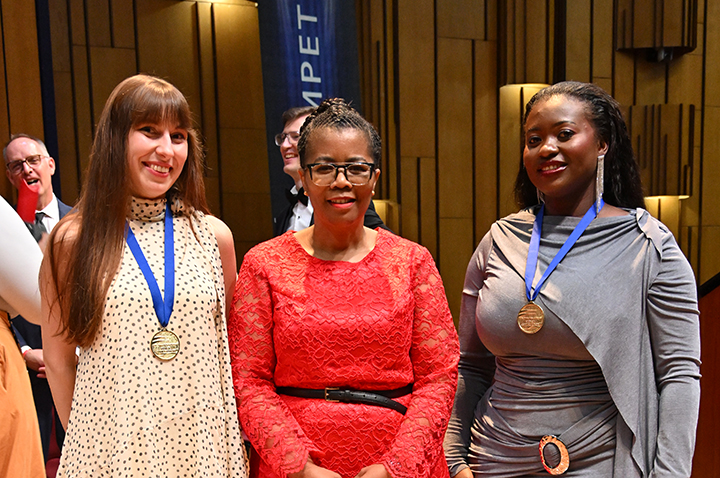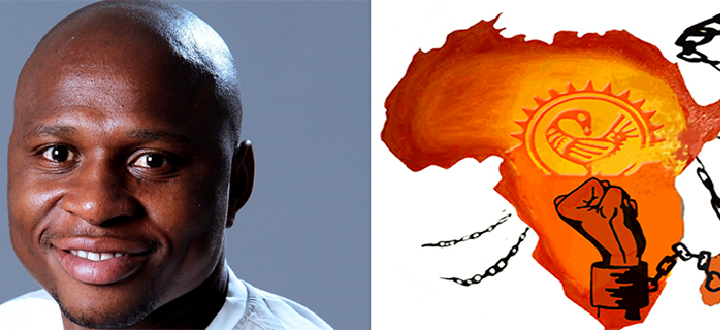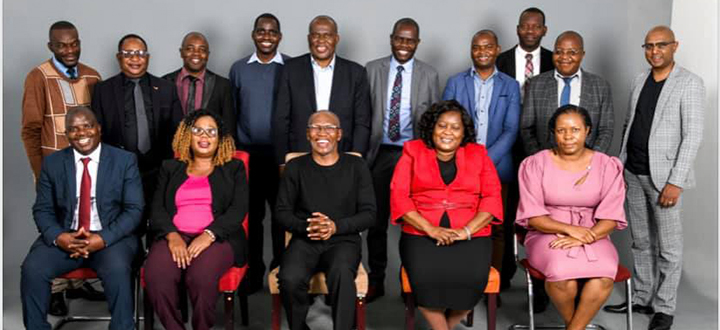
Professor Puleng Segalo, incumbent of the Chief Albert Luthuli Research Chair at Unisa, has received The World Academy of Sciences (TWAS) Regional Award 2021 for Public Understanding and Popularisation of Science. The prestigious award is aimed at fulfilling the academy’s objective of recognising, supporting and promoting scientific capacity and excellence in the developing world.
Segalo was honoured with the scientific award for significant contributions to popularise science through developing new strategies that serve the popularisation of science and technology in the developing world. The award also recognises that, through Segalo’s body of work in publications and community engagement, and her utilisation of an artform or methodology familiar to women in many communities, she offers an avenue for the understanding of often-difficult concepts such as psychological trauma and contributes toward the overall well-being of women.

Professor Puleng Segalo
Sharing her sentiments about winning the award, she says: “I am truly honoured and humbled by this recognition. I am very passionate about public science and the popularisation of science/scientific scholarship because it is through engaging with our communities in ways that do not exclude that we can be able to reach and make a difference in society.” She adds: “I always ask, for whom are we doing this work? We need to constantly and creatively think of ways in which we can communicate our scientific/research results with the broader society beyond conferences and research outputs – that way we can truly speak of social impact.”
The award also recognised Segalo’s continuous engagement on national media platforms as a contributor who offers expert inputs and perspectives on various social and psychological issues. Worth noting about most of her societal contributions in the popularisation of science is that she delivers these in the Sesotho indigenous language. According to TWAS, this effort assists in demystifying the field of psychology. TWAS believes that Segalo’s engagement with communities in their native language is a helpful tool that ensures people comprehend otherwise complex scientific information that is often understood by a few.
In this regard, Segalo argues that there is often talk about centring African languages in academic spaces. For her, she says, “being deliberate about engaging and reaching people in our communities means being serious about using African languages to communicate. We have already existing platforms such as national radio stations (which cater for all our indigenous languages) with millions of listeners daily. We need to use such platforms.”
Segalo further asserts that many people do not and cannot easily access journal articles and even if they do, the foreign languages used (e.g. English) coupled with the jargon used in various disciplines make it difficult for people to connect and engage with the work. “For me, using African languages such as Sesotho, allows me to reach and connect with people who may otherwise not understand the role of psychology in our lives,” she says.
Speaking about a memorable experience in her engagements with communities in their native languages, Segalo recalls a highlight from an engagement she held about the challenges of unemployment among the youth and the possible impact on their mental health on Lesedi FM: “We had an open line and I got the opportunity to engage with the listeners on how to deal with the despondency of being unemployed (especially for people sitting at home with university degrees). We engaged on possible options they could consider and for many, this was an eye-opener as they had not thought about the options we discussed on air. The discussion that day offered hope,” she explains.
Unisa, as an engaged university, makes a concerted effort to position itself as a university involved in the work of collaborative knowledge creation, application and mobilisation. It is a university that sets its intellectual gifts and talents in the direction of the needs of society. True to this ethos, Segalo encourages Unisans to find platforms where they, too, can play an active role in public science. “There are many online and offline platforms available where we can bring our research to life for the betterment of our communities,” she concludes.
*By Tshimangadzo Mphaphuli, Senior Journalist, Department of Institutional Advancement
Publish date: 2022/05/04
 Unisa empowers award-winning agro-cosmetics entrepreneur
Unisa empowers award-winning agro-cosmetics entrepreneur
 Unisa celebrates a project of hope, dignity and student success
Unisa celebrates a project of hope, dignity and student success
 Women vocalists take top honours at Unisa's globally renowned showcase
Women vocalists take top honours at Unisa's globally renowned showcase
 African wealth is dependent on investment in education and development
African wealth is dependent on investment in education and development
 Unisa celebrates matric result success at Correctional Services ceremony
Unisa celebrates matric result success at Correctional Services ceremony